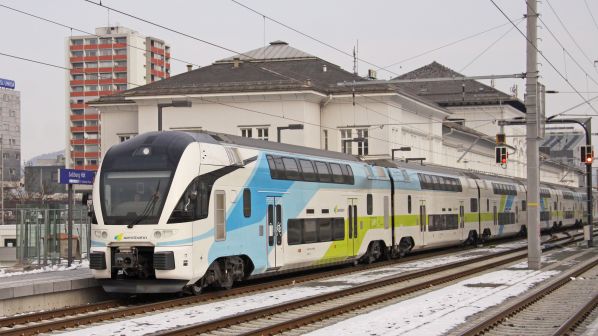The call comes as the passenger rail market in Europe, and around the world, has been hit particularly badly by the Covid-19 pandemic, with passenger numbers dropping by up to 90% for some operators. A number of private operators were forced to stop running services during the height of the pandemic.
Speaking during an online press conference on September 23, AllRail president Dr Erich Forster said there was inadequate support for private operators, especially those operating open-access services, which risked reversing three decades of work undertaken to liberalise the market.
Forster, who is also the CEO of Austrian open-access operator Westbahn, says there needs to be a coordinated approach towards track access charges across the European Union, following the European Commissions’ introduction of a regulation allowing member states to waive and relax track access and reservation charges as well as easing mark-up regulations applied for using European railway networks.
“We need fast action, and we need action in a coordinated way by transport ministers of the EU member states, so that there is equal treatment in all countries, as well as for all the companies in the railway sector,” Forster says. “At the moment there is no equal treatment of private newcomers and the state incumbents. But it should be a top priority of the community to have everyone secured for the future, because public transport only works if there is competition.”
Forster says that further support will be needed to ensure private open-access operators and ticket vendors are still in business in a few months’ time.
Failing to provide financial support for private operators now could save governments money in the short term, but would ultimately result in increased costs in the long term through reduced competition, Forster says.
His comments come as the Czech Republic’s Ministry of Transport announced a new financial programme for passenger rail operators that will see Koruna 400m ($US 17.1m) distributed among long-distance public service obligation (PSO) passenger rail operators. However, long-distance open access operators will not receive any financial support.
Westbahn has fared better than some private operators, after the Austrian government awarded it and Austrian Federal Railway (ÖBB) a short-term public service obligation (PSO) contract to operate an hourly service between Vienna and Salzburg, which was previously operated on a commercial basis.
However, Forster says they are still waiting to see what long-term support will be available from the government. Westbahn has proposed a special timetable that would allow it to manage the crisis while still providing a level of service for passengers, which it is waiting for the government to respond to.
A recent increase in Covid-19 infections in Austria has also seen passenger numbers begin to fall again, which has resulted in a further drop in revenue. “Very clearly there is a need for help in the future,” Forster says.
Responding to a question on the Trans European Express 2.0 (TEE) proposal put forward by German transport minister Mr Andreas Scheuer earlier this month, AllRail vice-president and Transdev CEO for North and Central Europe, Mr Christian Schreyer, said he supported operators working together, but added that the TEE was designed primarily as a cooperation between national operators.
“It’s not really a real European rail network with fair competition, where private operators can develop their own lines,” he says. “The idea really is to combine and cooperate between the state-owned rail incumbents and that’s not really a step forward - that’s a step back into history.”
Night trains
Asked whether night trains had a role to play in the recovery of rail services post-coronavirus, Schreyer said that was a possibility but it had to be done in the right way.
“There are private operators in the market that are willing to develop night train routes internationally without public subsidies,” he says. “But they can only be competitive if they are not run in parallel with state-run services subsidised by member states.”
Schreyer says there are two possible ways to facilitate the development of night train services in a fair manner. The first is to operate them on a PSO basis, with an open tender and a long-term contract, while the second is to leave it open to competition for open-access operators.
There is a risk that the increasing cooperation on night train services between state-owned operators, such as the agreement reached between Swiss Federal Railways (SBB) and Austrian Federal Railways (ÖBB) earlier this month, would push private operators out of the market.
“If you do not pay attention now, then in five years private rail companies, or at least open access providers, will be dead because there is no fair level playing field,” he says.

